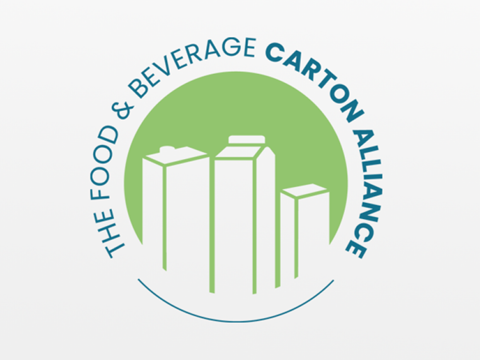
The Food and Beverage Carton Alliance (FBCA), formed from the merger of The Alliance for Beverage Cartons and the Environment (ACE) and EXTR:ACT, has announced its launch as a unified platform focused on advancing beverage cartons as renewable and circular packaging solutions.
FBCA says it aims to expand beyond Europe to unite beverage carton manufacturers and paperboard suppliers to drive sustainable packaging solutions that enhance food security, reduce waste, and advance low-carbon circular economies. The association adds that by leveraging renewable resources and continuously improving their environmental performance, food and beverage cartons play a crucial role in extending the shelf life of perishable foods and ensuring safety and quality for consumers worldwide.
The newly elected FBCA Board includes Patrick Verhelst, president of FBCA and senior director of Business Development at Elopak; Ulrika Wedberg, vice president of FBCA and executive vice-president of Sustainability & Public Affairs at Billerud; Karina Boers, head of Sustainability Development at SIG; Tamara Bullock, director of Corporate Affairs, Europe and Americas at Tetra Pak; and Erik Hallberg, vice-president of Coating, Converting and Digital Technology, at Stora Enso.
FBCA states that it seeks to unite industry leaders and global stakeholders in ensuring the long-term viability of a food and beverage carton sector, optimizing the performance of the life cycle of food and packaging systems. The association remains based in Brussels, Belgium.
In May last year, Zotefoams and Refresco made a joint development agreement to conduct in-market trials for ReZorce, a mono-material packaging substrate for beverage cartons. Another partnership was also announced with Südpack, hoping to produce up to 100 million ReZorce cartons every year.
Towards the end of 2024, Tetra Pak and Lactalis revealed a new carton package incorporating certified recycled polymers from used beverage cartons into dairy packaging. Hoped to help reduce the industry’s reliance on finite fossil-based virgin materials, the material was reportedly certified by ISCC PLUS as originating from the recycling process for used beverage cartons in Spain.
If you liked this story, you might also enjoy:
The ultimate guide to the Packaging and Packaging Waste Regulation in 2024
How are the top brands progressing on packaging sustainability?
Sustainable Innovation Report 2024: Current trends and future priorities













No comments yet